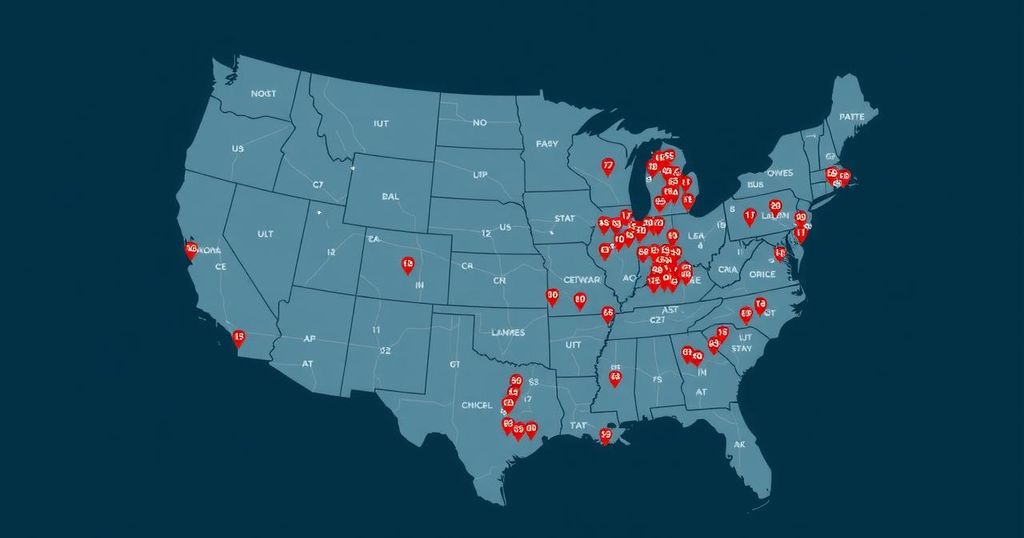Impact of Extreme Weather on Elections: Insights from the 2024 Supercycle

Extreme weather events disrupted elections across 14 countries during the 2024 Supercycle, affecting processes such as registration and campaigning. The International IDEA’s Election Emergency Crisis Monitor tracks these challenges, showcasing the impact of disasters like hurricanes and heatwaves on electoral integrity. This highlights the increasing necessity for robust emergency responses in electoral systems worldwide.
In the 2024 Election Supercycle year, extreme weather events significantly impacted national and subnational elections in 14 countries globally, with notable occurrences in Bosnia & Herzegovina, India, Mexico, Senegal, Tuvalu, and the United States. Many of these disruptions, intensified by climate change, affected various stages of the electoral process, such as voter registration, campaigning, voting operations, and result announcements. For instance, a storm in Tuvalu delayed the Prime Minister election as elected officials from outer islands could not reach the capital, while extreme heat during elections in India resulted in tragic casualties. Heavy rains during the June EU elections led to logistical challenges in Austria, prompting the relocation of polling stations. The rise in temperatures in Mexico caused significant voter distress, with some unable to cast their ballots due to health issues. In the United States, hurricanes hitting shortly before the Presidential election led to numerous fatalities, illustrating the severity of these occurrences. Furthermore, flooding in Senegal hindered voter participation in parliamentary elections. International IDEA’s Election Emergency and Crisis Monitor records the electoral challenges posed by various disasters, indicating a need for effective emergency responses and adaptation within electoral systems.
The intersection of climate change and electoral processes has become increasingly pertinent, as adverse weather events can undermine democratic procedures. This issue has gained attention from organizations seeking to monitor and improve electoral integrity amid natural disasters. International IDEA’s Election Emergency and Crisis Monitor (EECM) serves as a critical tool for understanding how extreme weather conditions—including floods, hurricanes, and heatwaves—have affected elections worldwide since 2001. By analyzing data across different countries and types of elections, the EECM enables stakeholders to grasp the ramifications of disasters and formulate appropriate responses, ensuring electoral integrity is preserved during crises.
In summary, the impact of extreme weather on elections is profound, highlighting the vulnerabilities within electoral systems when faced with natural disasters. The cases documented during the 2024 Election Supercycle underscore the urgent need for resilience planning in electoral processes to mitigate the effects of climate change. Initiatives like International IDEA’s EECM will be essential for guiding future efforts in safeguarding elections against the growing threats posed by environmental challenges, ultimately ensuring democratic integrity and voter participation in this evolving landscape.
Original Source: www.idea.int






